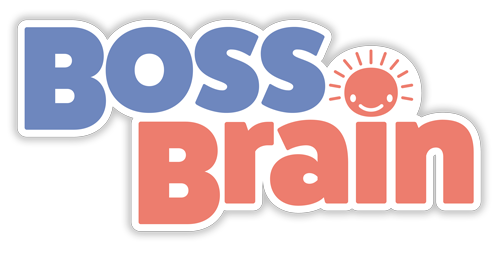Is it just me or is the nation soccer obsessed right now? As the Matilda’s head into the world cup semi-final, kids, teens and adults alike are sharing memes, donning yellow and practising their back flips. Even my wee seven-year-old has decided to alter what she wants to be when she grows up – a professional soccer player of course!
As a mum, I am mesmerised at watching my kids transform into Kerr-consumed #fangirls and while I do secretly loove seeing them get behind women in sport, I wonder what the next trend will be and if they really care about soccer at all or just enjoy being swept up in the fandom.
If parenting was compared to a soccer game (cause let’s be real, its pretty much just as hectic as Australia playing England in the Semi-Finals), what sets apart the mildly interested fan to the genuinely dedicated? What does it really mean to care for someone enough to support them no matter what? How can we stand in our kid’s corner and be their true fans even when emotions are running high?
Here’s what Clinical Child Psychologist Lynn Jenkins says,
1. Focus on their effort more than their performance
Have you ever noticed the first thing people jump to ask others after a sport’s game is ‘did you win?’. As parents we can shift our focus ever so slightly to a more supportive lens focused on effort rather than performance. This means our kid hears: I see how much you tried as opposed to I noticed how you failed. So, consider talking less about goals (whether it be soccer or at school or life in general) and say more things like ‘great effort in the game today mate.’ Mainly because to you, this one game, in this one moment in time, is a time that you probably won’t remember in ten years. BUT to your kid, it could be a very significant moment.
2. Accept your own embarrassment
When it comes to seeing your kids having a public meltdown, there’s no doubt, you might get the feeling like you want to disown them. However, the BIG thing to remember when it comes to your kid’s BIG behaviour is they need you the most in those moments. So, while it might be embarrassing for you, it’s about THEM.
If you feel embarrassed, try to take a big breath and ACCEPT your own embarrassment. Then, do your best to keep it to yourself. It’s important not to let your kids know that you are embarrassed by them because our kids look to us as to how to feel about how they ‘performed’ more than we realise. If they see we are embarrassed by them, they are likely to ‘generalise’ this to all situations in which they perform. Possible outcomes could be thoughts like: I am sub-par, stupid, not good enough, faulty, just ‘embarrassing’.
Plus, while connecting with other parents about the trials of parenting is important, your kids really need you in their corner, so try not to dis your kid about their behaviour behind their back. Be their champion, even though you might be internally cringing.
3. See them for who THEY are. They are not you.
Dance mum, soccer mum, sport obsessed dad – there’s plenty a label out there to describe parents longing for their kid to grow up in their own shoes (or fill a void!). However, it’s super important to see your kids for who THEY are. They are not you 30 years ago. Your kids have their own abilities, interests, potentials and life limitations. As parents, it’s our role to foster these things. This can be difficult as our only template of being a child, is our own. So, it’s only natural to use our own self and our own experiences as the working example. But, a first necessary step is to separate our kid from ourselves, meaning, their life is different to ours.
So, when they make a choice to not go for the goal, that is their decision due to… something. The AIM is firstly, accept their decision. If that is too difficult to stop at, then, enquire as to what made them decide to make that decision. Which looks like: ‘Oh, OK, I get it’. And then, ‘What did you think was going to happen at the time?’ PAAUUSSE. And then (if you feel the need to teach)… ‘Another way to go, if you want, could be,…’
Now back to the big game…
The Matilda Active Support club (MAS) is the Australian National Team’s supporter group you hear beating the drums during every game. In a recent ABC article, the MAS group share how they create a safe space for fans of women in sport. One of the members says, ‘It’s about everyone… supporting in a fun, noisy, passionate way. But without the aggro.’
Well, I think on this occasion, let’s take some parenting cues from the MAS club. FUN, NOISY, PASSIONATE, without anger. Sounds like an epic #fanparent to me.
About Boss Brain.
Here at Boss Brain, we love tips and tricks but we’re all about teaching you real stuff to change the way families view and work with emotions. If you need some more help, take a look at our 10-week online kids’ program.
About Lynn Jenkins
Lynn Jenkins is a Clinical Child Psychologist, mother of 3 and creator of the 10-week digital program Boss Brain. She believes it ‘makes sense to start at the beginning’ when it comes to emotions and behaviour as ‘when we have strong emotional foundations, we can build a strong human foundation’. Together with her team she loves developing Boss Brain and resources for parents to make parenting a little easier and kids a little calmer.
About Eliza LeMessurier
Eliza is a mum of 3 and has worked with Lynn on the development of Boss Brain since it was a wee Boss Baby. She has a special interest in using tech to access and communicate the human experience. Eliza loves sourcing ideas, writing and editing. She’s passionate about ‘sharing the REAL parent experience without the sugar coating’, and ‘breaking down psych lingo’ so that parents can access education and support like Boss Brain in simple, relatable ways.



